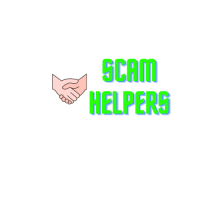
Image Source: FreeImages
Do you ever wonder why some businesses get a call from a person claiming to be from the IRS?
Or why some individuals get scammed out of their hard-earned money?
Or why some companies get bombarded with requests for credit card information from people claiming to be from the Red Cross?
The answers are simple really: Disasters. Organizations are constantly being solicited for donations and relief efforts following natural disasters such as hurricanes, earthquakes, floods and others. While this may seem like a good way to boost your company’s profile and draw in potential new customers, it can also be very dangerous.
Because when disaster strikes, people flock to the aid of their friends and family members, not businesses or other charities. This is a scam called a “disaster relief agency scam” and it’s extremely common.
Here are some examples of how these scams play out: A well-meaning individual calls your office or home and leaves voice messages requesting donations or information about your company’s operations following natural disasters such as Hurricanes Katrina or Sandy.
Do not send any money or answer any questions – simply delete the call immediately! These calls may come from legitimate organizations that have been infiltrated by scammers. They may also come from individuals who have had personal phone numbers compromised by cybercriminals. In either case, don’t give out sensitive financial, personal or company information over the phone unless you know who is calling and what their objectives are.
What to do if you feel that you are a victim of Fake disaster relief agency scams
Get voicemail
If you get a message from someone who you’ve never heard before asking you to leave a message for them when they’re back in touch, it’s probably a scam. If you receive a call from someone who you know is a relative or close friend, it’s usually a good sign that the person you’re giving the information to is a scammer. That person may be trying to sell you something, like a phone number, personal information or financial institution account details. If you get a call like this, simply ignore it and delete the call from your phone.
Don’t answer the phone
If you get a call from someone you don’t know and who you immediately recognize as a part of a relief organization, be suspicious. The first thing to check is to see if they are legitimate. You may want to call the organization and verify that the person on the other end of the line is who they say they are. If they’re not, you can ask them to call you back at a predetermined number. You can also call the number back yourself and ask them to leave you a message. If they don’t, you can report the phone call to the organization and ask them to verify that the number is legitimate.
Don’t donate money or personal information
If someone asks you for money, don’t donate personal information or financial information over the phone. Also, if someone requests that you send them money via Western Union (or a similar money transfer service), don’t do it. These types of scams often target elderly people who may not be aware of the scam and think they are receiving a legitimate request from a family member or friend. Donate money to a non-profit organization, such as the Red Cross or American Red Cross, and use the money for humanitarian efforts.
Get your company and organization out in the media
If a legitimate organization calls and asks you to keep your business’s name out of the media, don’t do it. Doing so not only endorses the fraud, it may actually make the situation worse. You may be helping the scammers by keeping your name out of the media, while also keeping the general public from looking into the legitimacy of the organization. It’s better to keep your name out of the media, avoid any bad PR and support the Red Cross, than to advertise your company and let scammers use your name to scam more people.
Final advice
Don’t get scammed. It may seem like an easy thing to do, but if you do, then a lot of people are. So, what do you do if you get a scam? Follow these steps: If you get a call like the one below, it’s likely a scam. The scammers are looking for information, like your contact information, that they can sell to aid groups abroad. They’re the agency responsible for preventing and stopping scams and helping people who are the victim of a scam. Also, always ask for the person’s phone number when you’re done. If you receive a similar call, don’t respond to it. Simply ignore the call and delete it from your phone. A genuine public assistance organization like Scam Helpers would never ask for your personal information or send you a request like this. They would most certainly call you first before doing so.
